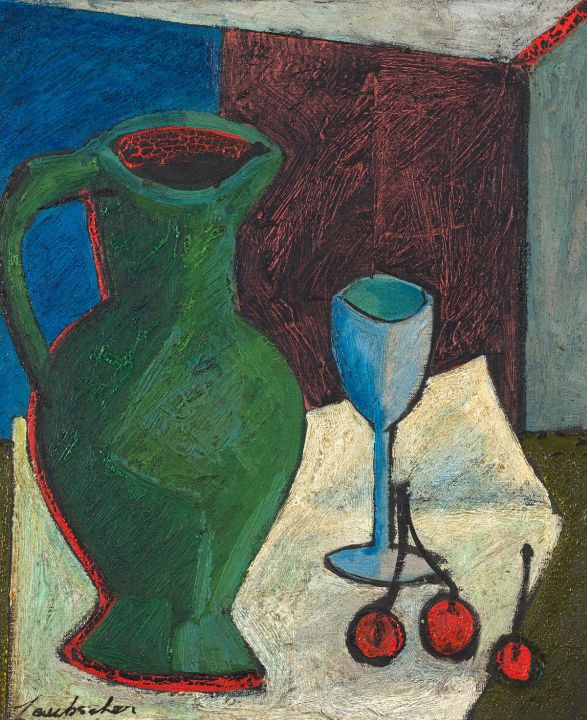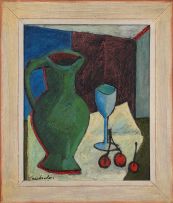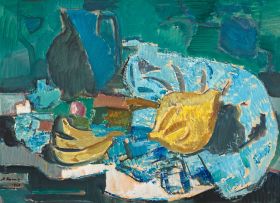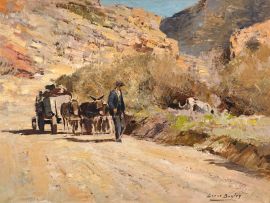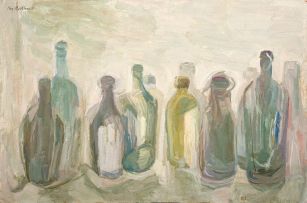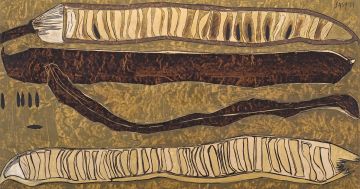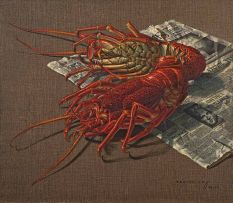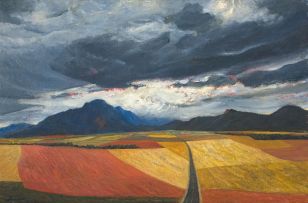Important South African and International Art, Decorative Arts & Jewellery
Live Auction, 15 October 2018
Art: Evening Session
Incl. Buyer's Premium & VAT
About this Item
signed and dated '52; Wolpe Gallery label adhered to the stretcher
Notes
This lot was produced in the same year that Erik Laubscher returned to South Africa from Paris. Presented in an original Joe Wolpe frame, it typifies what Laubscher later described as his "acceptance and application of concepts fundamental to European painting".1 Laubscher's still lifes from the 1950s reveal the strong influence of Bernard Buffet, a Parisian painter linked to the New Realist school of French expressionism, and Fernand Léger, a Cubist painter under whom Laubscher trained at the Académie Montmartre in Paris (1950-51). This painting presents an emerald green jug with cracked, postbox-red interior viewed against a fragmented background. Rich in surface detail, Laubscher's layered use of paint evokes a three-dimensional object seen in changing light. His bold use of colour achieves a nominal realism. The red of the cherries is, for instance, also used to delineate the jug and background detailing. Laubscher began incorporating bolder colour treatments into his still lifes while still in Paris, marking a move away from the subdued greys and greens of his earlier work. Laubscher's still lifes were enthusiastically received by contemporary critics. Walter Battiss described his work as "compelling" and assured.2 Matthys Bokhorst, the future director of the South African National Gallery, also commended his still lifes for their "stylised realism with strong cubistic elements".3 Sean O'Toole
- Muller Ballot (1994). Erik Laubscher, University of Stellenbosch, Stellenbosch. Page 1.
- Walter Battiss, "New Art and Old Art in South Africa", The Studio, Vol. 144, 1952, page 70.
- Matthys Bokhorst, "Exhibition by Erik Laubscher", Cape Times, 24 September 1955.
